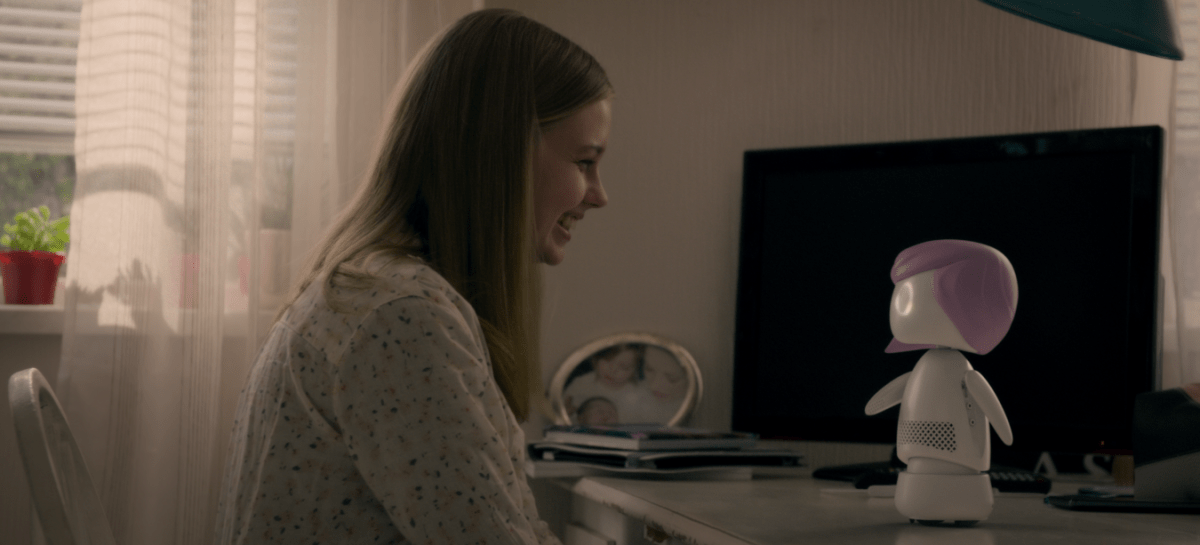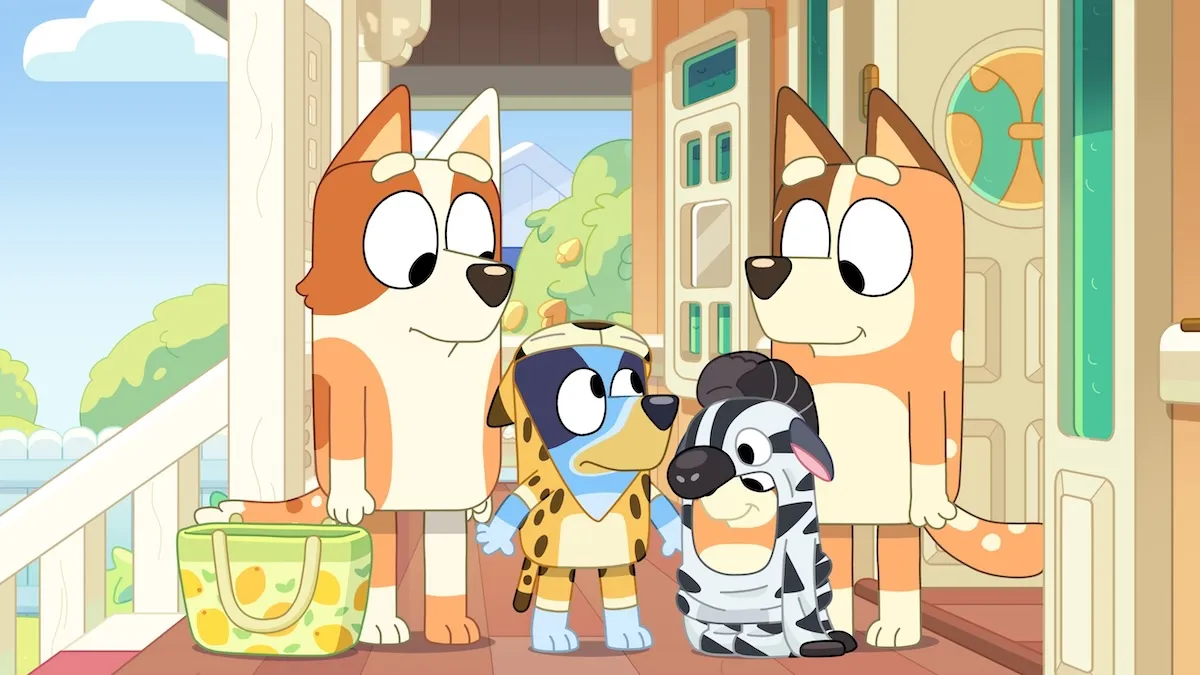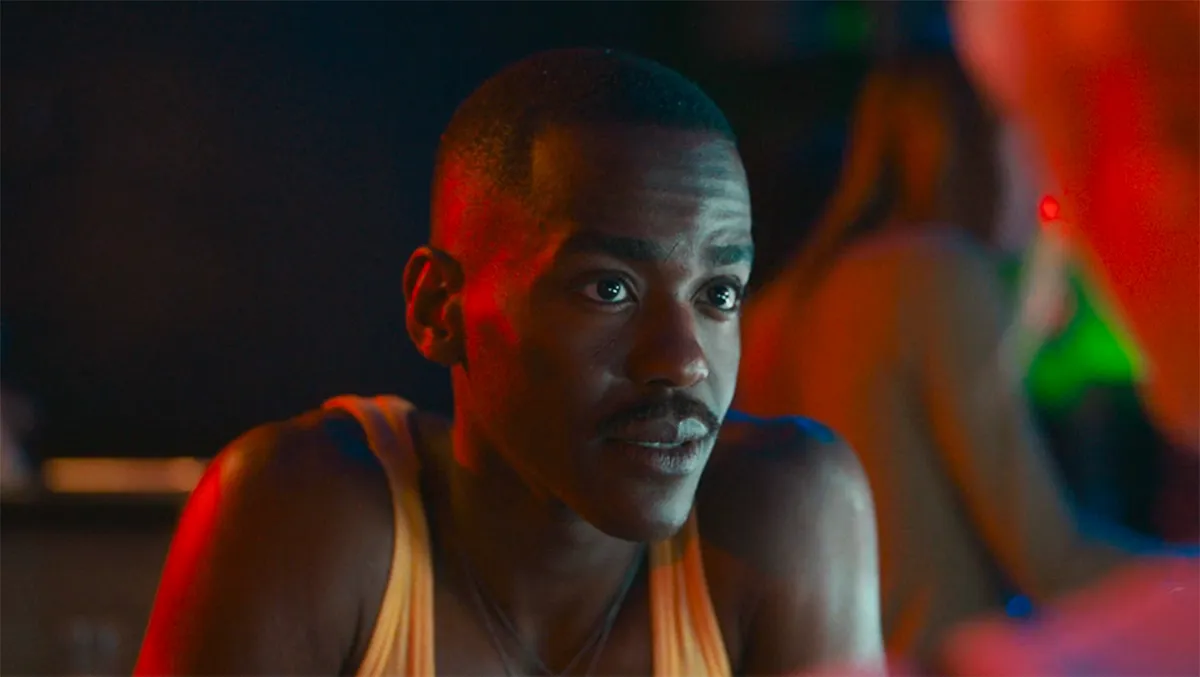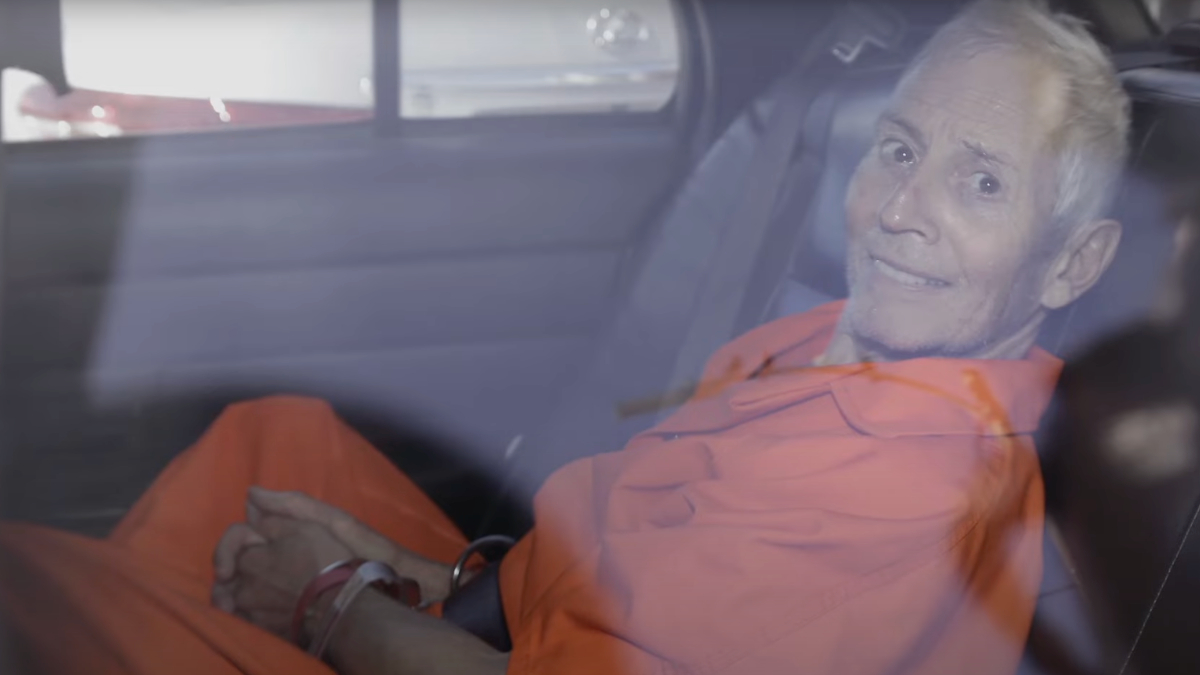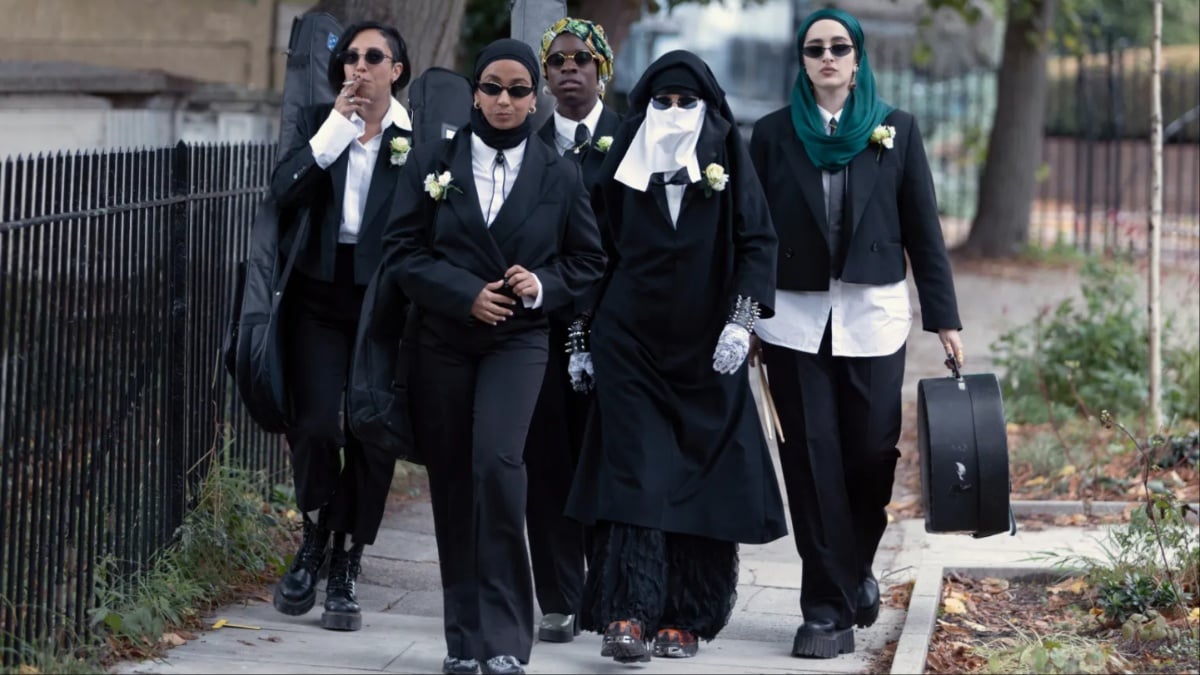Season five of Netflix’s Black Mirror dropped last week, premiering three new episodes that focused (as all episodes of the series do) on the dangers and trappings inherent in modern technology. At its best, the anthology series explores the intersection of technology and morality in its artfully woven fables. But like any anthology series, Black Mirror can stumble in its efforts to deliver a satisfying episode.
“Rachel, Jack and Ashley Too”, which will no doubt be remembered as the Miley Cyrus episode, is one of those episodes that misses the mark. It focuses on sisters Rachel (Spider-Man: Far From Home‘s Angourie Rice) and Jack (Sharp Objects‘ Madison Davenport), who are both dealing with the death of their mother in different ways. While Jack finds solace in the punk rock music her mother loved, introverted Rachel is obsessed with bubble-gum pop star Ashley O (Miley Cyrus, tapping into her Hannah Montana roots).
At the start of the episode, Ashley O debuts the Ashley Too, an Amazon Echo-like doll toy that responds to girls, offering makeover tips and encouraging words of wisdom. Rachel begs her indifferent father for an Ashley Too for her birthday, and soon finds herself confiding in her new digital BFF.
For an episode that centers on teen girlhood, the episode fails in its characterization of its three female leads. At 15 years old, Rachel is far too old to be so dependent on the toy. The story would work better with a girl who is 11 or 12, but instead serves to infantilize a teenager.
In fact, the episode seems entirely unclear of how to write or depict a teenage girl. Black Mirror‘s writer and creator Charlie Brooker struggles to find an authentic voice for any of the leads, who would have been better served by a female writer. But Black Mirror rarely employs female writers (Brooker writes nearly every episode) and of the 22 installments, this is only the second to be directed by a woman, Anne Sewitsky (the first was season 4’s “Arkangel”, directed by Jodie Foster).
Ashley O, with her pink wig and her bland aspirational lyrics, is meant to skewer any number of female pop stars of the past few decades, who built their brands on inoffensive, superficial “girl power” feminism. And like many of those artists (and Cyrus herself) the real Ashley finds herself drained and frustrated by the industry around her. Depressed and angry, Ashley wants to record more authentic, emotional music, but is trapped by her overbearing manager aunt who raised her. Poking fun at vapid pop music is like beating a dead horse at this point, and the episode offers nothing new or nuanced to the pop star cliche.
And perhaps worst of all, it’s no fun to watch. The pacing is scattered, and the main storyline takes too long to get going. Paired with a late in the game rescue mission and an unsatisfying ending, “Rachel, Jack, and Ashley Too” has nothing interesting or profound to say about pop music, girlhood, or technology. And that’s a shame, because all three are compelling avenues for Black Mirror to explore.
(image: Netflix)
Want more stories like this? Become a subscriber and support the site!
—The Mary Sue has a strict comment policy that forbids, but is not limited to, personal insults toward anyone, hate speech, and trolling.—



